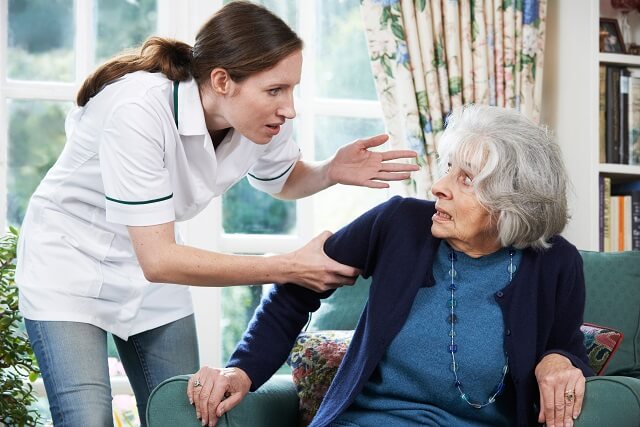Nursing home negligence lawsuits are about far more than just money. Cases are brought against negligent nursing homes and assisted living facilities to expose elder abuse and neglect. Most of the time, the victim is unable to speak the truth. Therefore, it is incumbent on you, the surviving family member, to seek justice for your loved one’s harm. You only get one shot to bring a claim against a facility, so be prepared ahead of time and avoid these 5 common mistakes when bringing a nursing home abuse lawsuit.
#1 Don’t Sign an Arbitration Agreement
If you have not already signed one, absolutely do not sign a nursing home arbitration agreement. Arbitration agreements in nursing homes keep you from exposing the neglect of the facility in court. Instead, you will be confined to a private, closed-door arbitration, away from the watchful eye of the public.
#2 Don’t Wait to Involve a Lawyer
 Many families are averse to suing a nursing home for wrongdoing. This is understandable. However, a civil lawsuit is oftentimes the only way to exact justice for the injury or death of your family member. Since a civil claim is inevitable in cases involving serious injuries, like bed sores, falls, unexplained fractures and medication mistakes, do not delay in seeking legal guidance. Most of the key documentation in the case is being created in the minutes, hours and days after the event. The corporate facility has a team of lawyers working on their behalf from the jump. Make sure to call a nursing home lawyer right away so your interests can be protected during this crucial time period.
Many families are averse to suing a nursing home for wrongdoing. This is understandable. However, a civil lawsuit is oftentimes the only way to exact justice for the injury or death of your family member. Since a civil claim is inevitable in cases involving serious injuries, like bed sores, falls, unexplained fractures and medication mistakes, do not delay in seeking legal guidance. Most of the key documentation in the case is being created in the minutes, hours and days after the event. The corporate facility has a team of lawyers working on their behalf from the jump. Make sure to call a nursing home lawyer right away so your interests can be protected during this crucial time period.
#3 Keep Photos, Texts, Voicemails and Other Evidence
 A common misconception is that photos, texts, voicemails and emails are 100% retrievable. These electronic communications are able to be deleted. Phones get destroyed or broken. Servers get replaced. For this reason, if you have an important voicemail from the DON or a text from the aide, make sure to preserve this key evidence. Statements made by the facility’s staff can be used against the facility later on as a party admission. In short, if you have something communicated from the nursing home to you, keep it.
A common misconception is that photos, texts, voicemails and emails are 100% retrievable. These electronic communications are able to be deleted. Phones get destroyed or broken. Servers get replaced. For this reason, if you have an important voicemail from the DON or a text from the aide, make sure to preserve this key evidence. Statements made by the facility’s staff can be used against the facility later on as a party admission. In short, if you have something communicated from the nursing home to you, keep it.
#4 Report the Wrongdoing to State Agencies
Another misconception many of our clients have is that we, the nursing home abuse attorneys, will report your loved one’s injuries to the appropriate agencies. This generally does not happen. A state agency will take your complaints more seriously if you make them yourself. For this reason, we have compiled a comprehensive list of how to report nursing home abuse in your state.
#5 Assist Your Lawyer in Gathering Crucial Witnesses
Although your lawyer will have far more experience in litigating a nursing home negligence case than you, remember, this is your life. You lived it. You know the facility. You communicate with the staff. You know who is good at their job. Who cares. Who is trustworthy.
Because you lived this particularly trying chapter, you have an in depth knowledge of witnesses that can help your lawyer prove your elder abuse case. Compile a list of staff you liked, staff that cared, staff that were lazy, people who quit the facility (and can now speak with your lawyer as former employees). Although we can get employee rosters through discovery, these are just names without the context that you can provide.
Conclusion
When righting a wrong that occurred to a family member in a facility, do not go it alone. Make sure to work with a nursing home lawyer that focuses on this practice area. For further questions on how to proceed, contact the compassionate and experienced attorneys at Senior Justice Law Firm for a free case consultation.
Call us now, toll-free, to help you on your journey to justice: 1-844-253-8919.



